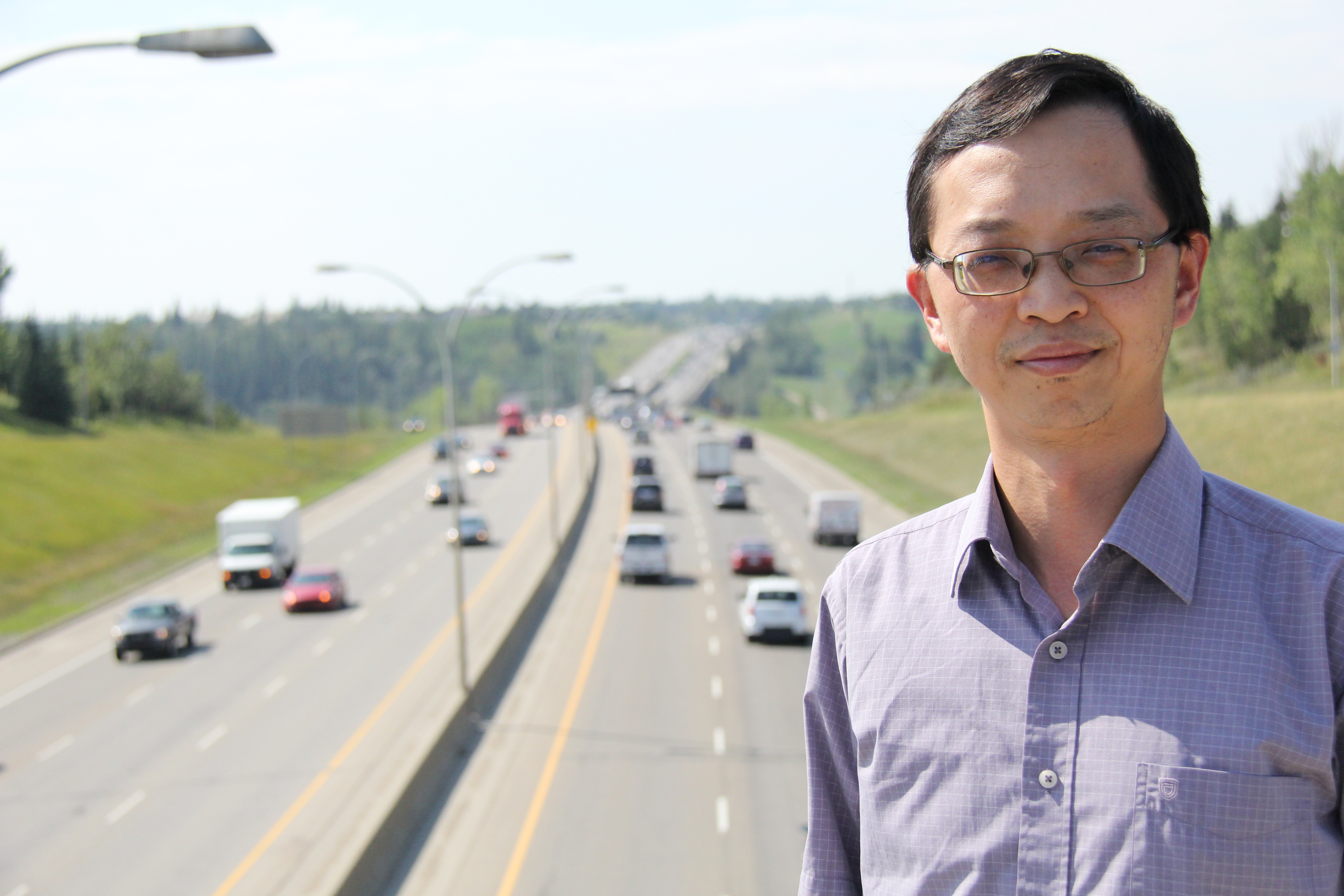Welcome to Innovator Spotlight, the newest addition to The Quad!
Each week, we’ll introduce you to a faculty or staff member whose big ideas are making a big difference.
We’re excited to kick off the series by introducing you to Tony Qiu, a researcher in the Department of Civil and Environmental Engineering. Tony is at the centre of making self-driving cars an imminent—and safe—reality. As an expert in intelligent transportation systems, he has helped more than 20 cities around the world reduce traffic congestion and commuters’ travel time.
His work will be one of the U of A projects to benefit from a new $15-million partnership between TELUS and the U of A. The partnership will provide teams like Tony’s with high-speed 5G connectivity to accelerate research that relies on transmitting large amounts of data across wireless networks.
Without further ado, meet Tony.
What do you research?
My research focuses on connected transportation—communication between connected infrastructure and connected vehicles using sensing and computation. By working toward a fully connected transportation system, my work seeks to improve safety and efficiency for drivers.
What’s one big problem you want to solve?
Automated vehicles are a hot topic, but I want to address this area from another angle. I focus on the infrastructure surrounding the vehicles—the kind of intelligent infrastructure we need to be compatible with vehicle intelligence. In other words, I focus on the kinds of wireless networks and traffic control systems cities would need to allow cars to safely drive themselves.
What does the word “innovation” mean to you?
“Innovation” means making life better using creative and forward-thinking ideas. Creating something for the sake of it is not enough. As an engineer, I am driven to develop systems that improve the lives of those who use them. Smart transportation will be of huge benefit to the community, for both industry and everyday citizens in their daily lives.
What’s your favourite thing about working at the U of A?
The university has been very supportive of my work and of the potential in intelligent transportation research, allowing me to grow and expand my research program and develop ACTIVE-AURORA, Canada’s first connected vehicle test network.
Alberta offers so many opportunities as a province. It is young and has lots of space which, for transportation research testing, is vital. In addition, we live in a unique setting that allows for specialized testing of vehicles and systems in northern climates, something that California could never replicate!
What’s next for you?
I’m just one year into the NSERC Industrial Research Chair program for Intelligent Transportation Systems, which is now moving into the testing phase. I feel privileged to be working with important industry partners for this, including TELUS, Stantec, IBI Group, ATS Traffic, the City of Edmonton and Alberta Transportation. The work is very exciting.
We are also starting work on two highly significant projects that have recently been announced. One is the Alberta Motor Transport Association’s Cooperative Truck Platooning Systems project sponsored by Transport Canada. This brings together a number of industry partners with three different U of A research teams to test truck platoons—linking transport trucks using automated driving support systems—in real-world conditions over the next 15 months.
The second is the new Living Lab initiative that partners TELUS with the U of A to develop the university as a test site for 5G implementation and applications. Transportation will be a significant piece to this cutting-edge research, and we are so privileged to be a part of this.
Do you know someone who’s breaking boundaries at the U of A? (Maybe it’s you!) We’re interested in hearing from people who are creating new solutions to make our world better. We want to feature people working across all disciplines, whether they’re championing bold ways of thinking, driving discovery or translating insights from the lab into the market.
Get in touch at blog@ualberta.ca.
